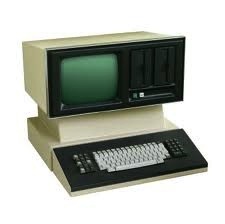The PC is Dead! Long Live the PC!
March 6, 2012 Yesterday, Russian Customs reclassified the iPad as a personal computer. As a personal computer, the iPad will now avoid a 5% import tax in that country. This development isn't big news but it's part of a mainstream trend in business, government and the media where the iPad is now being classified as a personal computer.
Yesterday, Russian Customs reclassified the iPad as a personal computer. As a personal computer, the iPad will now avoid a 5% import tax in that country. This development isn't big news but it's part of a mainstream trend in business, government and the media where the iPad is now being classified as a personal computer.
In general, almost every iPad that came off a shelf represents a PC that didn't. Think about that for a minute. In the last quarter, Apple sold 15.4 million iPads, many of them headed to businesses both large and small. The new reality is that people are using their iPads as more than just a companion to their PC. iPads are replacing PCs and with the introduction of the iPad 3 tomorrow, this trend is only going to accelerate further.
The market share held by HP, Dell, Lenovo, Toshiba, Acer and others is shrinking - rapidly. As PC manufacturers spent the last four years asleep at the wheel, waging a price war with products like netbooks and sub $600 PCs, Apple hired through a recession, dramatically increased R&D, developed iOS to version 5, developed iCloud and a $1b data centre to power it, opened hundreds of high end retail stores, and bought up global supply of electronics and components.
In 2011, Apple took 75% of the profit from the entire mobile phone industry, leaving every other manufacturer to fight over the remaining 25%. This isn't Apple eating their competitors' lunch - it's cutting off their air supply. This same scenario is now beginning to play out in the PC market.
With the iPad classified as a PC, Apple now commands 27% of the global mobile PC market. That's three times the market share of their closest rival, HP. A year ago, I was bemoaning the notion that tech journalists and analysts disregarded the iPad as a fad and a tool that could never replace a PC. Fact is, with numbers like the ones above, they can't ignore the iPad anymore.
The only way PC manufacturers can turn a profit is to sell their low margin products in mass quantities. Failing that, they raise prices, which will only exacerbate the transition to iPads. As the market for PCs dries up, businesses will no longer be able to purchase the cheap Windows boxes they're used to. Businesses who don't adopt iPads will be forced to reexamine their strategy as PC prices begin to rise across the board. Here's what I'm saying: The transition from PCs to iPads is happening as you read this and it's not a trend - it's a paradigm shift that's essentially unstoppable due to the upending of an entire global market.
For the last two decades, software for business has been built for PCs running Windows. And over the past decade or more, businesses have become accustomed to low priced PCs that could be deployed for every person in the company. Infrastructure has been built to support the hardware and software that businesses simply can't survive without.
On the eve of the introduction of the iPad 3, IT managers, CTOs and CFOs need to rethink what the next five years will look like. Most believe little to nothing will change - that the PC as we know it will continue to be prolific, and most importantly, cheap - and that mobile devices will remain as companion tools for the PC.
For 20 yers, the fate of the PC was decided by the collective decision making power of IT managers. But we're now living in an era dubbed the 'commercialization of IT', where consumer electronics have penetrated the corporate enterprise and IT managers have been forced to support devices their bosses brought in from home. The fate of the PC is no longer in the hands of IT managers and CTOs. It's in the hands of millions and millions of consumers who've brought their devices to work.
The iPad is a PC. It just happens that you can hold it, touch it, sync it with the cloud, use it all day without recharging, choose from hundreds of thousands of cheap and powerful apps, and buy the device for $550. You could say the PC is dying, but in fact, it's just being reinvented by the same company who created it in the first place.
Other posts by Chris Marriott
- Seeking Backstage Resellers
- Preemptive Multi-Talking -- Johnny and the Liquidators
- Preemptive Multi-Talking -- Pundits are the worst!
- Preemptive Multi-Talking -- WWDC 2016
- Preemptive Multi-Talking -- Of Cash Piles and Job Cuts
- Preemptive Multi-Talking -- 60 Scary Minutes Edition
- Preemptive Multi-Talking -- [R]Evolution Edition
- Preemptive Multi-Talking -- Pinocchio Edition
- Preemptive Multi-Talking -- FBI vs. Apple
- Preemptive Multi-Talking -- 1984 Edition
- Preemptive Multi-Talking -- Earnings Madness Edition
- Preemptive Multi-Talking -- All your passwords are belong to us.
- Preemptive Multi-Talking -- Fog, Fizzle, Flop Edition
- Preemptive Multi-Talking -- FUD Redux Edition
- Preemptive Multi-Talking -- Privacy be Damned Edition
